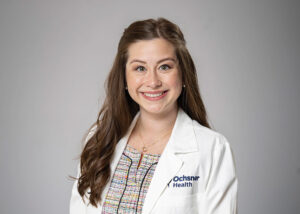By Dr. Taylor Hairston

As we age, our health needs change, and it becomes essential to understand and address these concerns. Whether you’re a family member, a professional caregiver or just looking to take better care of yourself, finding the right support can significantly improve quality of life for yourself or your loved one.
HERE ARE SEVEN COMMON HEALTH CONCERNS FOR OLDER ADULTS:
1. MOBILITY ISSUES:
Mobility can become a significant challenge due to conditions like arthritis or muscle weakness. We can improve mobility through exercise, mobility aids such as canes or walkers and ensuring the home is safe by removing tripping hazards.
2. CHRONIC OR ONGOING DISEASES:
Conditions like diabetes, high blood pressure and heart disease become more common with age. Discussing medication management with your doctor, closely monitoring vital signs and supporting a healthy lifestyle through nutritious meals and regular exercise can help you and your loved ones improve your quality of life.
3. DEMENTIA AND COGNITIVE DECLINE:
Alzheimer’s disease and other forms of dementia can be emotionally taxing for both older people and caregivers. If a loved one is showing significant memory loss or cognitive impairment, it’s crucial to create a structured daily routine, offer memory aids and ensure a safe environment.
4. DEPRESSION AND ISOLATION:
Social isolation can lead to depression in older adults. It’s important to maintain social activities and regular communication with friends and family and be attentive to signs of depression. Seeking therapy or counseling also may be helpful.
5. MEDICATION MANAGEMENT:
Older adults often take multiple medications, and managing them all can be complex. Medication management may look like organizing pillboxes or keeping a medication list. Regular communication with your physician is also vital.
6. FALLS AND INJURY PREVENTION:
Falls are a leading cause of injury in older adults. It’s important to make necessary modifications to the home, install handrails and ensure good lighting. Additionally, balance exercises can help reduce fall risk.
7. COMMUNICATION:
Effective communication is key to understanding your changing health needs and those of your loved ones. Caregivers should engage in open discussions and actively listen to address concerns and provide emotional support.
Aging involves addressing a wide range of health concerns, both physical and emotional. That’s why it’s important to stay informed, seek professional advice when necessary and maintain open communication. By seeking physical and emotional support, older people can enjoy a higher quality of life during their golden years.
Dr. Taylor Hairston is a family medicine physician at Ochsner Health in Gulfport, providing preventative care, routine checkups and personalized health counseling. To schedule an appointment, visit Ochsner.org/schedule.



